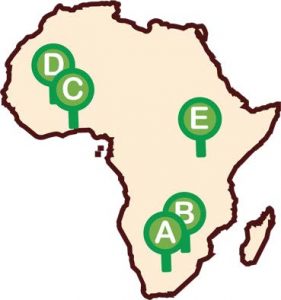H3Africa Collaborative Centers
AWI-Gen 2: Genomic and Environmental Risk Factors for Cardiometabolic Disease in Africans
The Goal
AWI-Gen is working to understand how genes, environment, and lifestyle affect cardiovascular and metabolic health across Africa and to uncover new insights that could help to improve the health of Africans.



